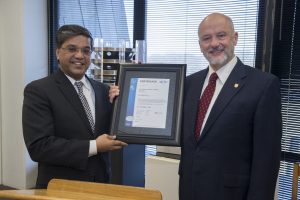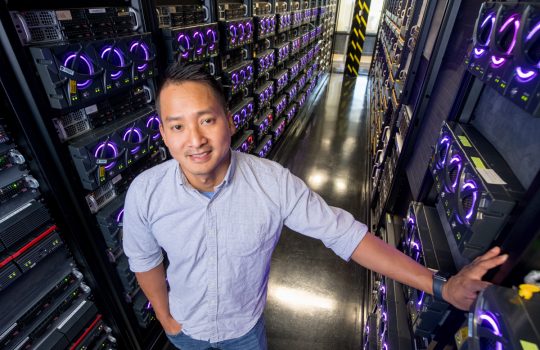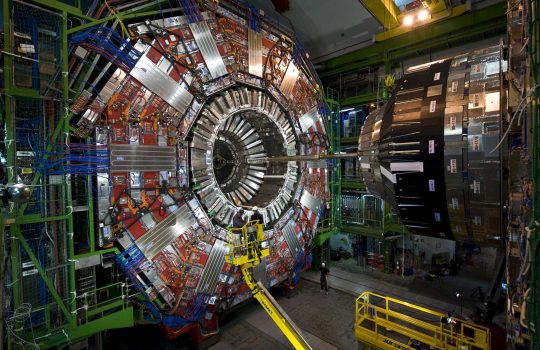
Fermilab Director Pier Oddone (right) accepts the ISO 20000 certificate from UL DQS CEO Ganesh Rao on Feb. 13 at Fermilab. Photo: Fermilab
The U.S. Department of Energy’s Fermi National Accelerator Laboratory has earned ISO 20000 certification for excellence in information technology service management. Fermilab is the first of the Department of Energy’s 17 national laboratories to earn this certification.
ISO 20K is a global standard for companies and organizations who provide quality IT services. The standard was developed in 2005 (and revised in 2011), and any organization can apply for ISO 20K assessment and certification.
Fermilab’s assessment was conducted over several years, and included 13 services that are fundamental to the laboratory. These included the IT service desk, the lab-wide email system, and all network services, including Internet connections. Fermilab must submit an annual audit and a plan to continually improve services to maintain this certification.
“This significant accomplishment demonstrates the continuing commitment to IT excellence at all of the Department of Energy’s national laboratories,” said Michael Weis, Fermilab site manager with the DOE’s Office of Science.
Fermilab’s Computing Sector received the official certification in December and a ceremony was held at the laboratory on Wednesday, Feb. 13.
“Since we began the ISO 20K certification process several years ago, our goal has been to deliver the best possible IT-related services,” said Victoria White, Fermilab’s associate director for computing and chief information officer. “Moving forward, we will continue to create a better computing experience for our 1,750 employees and more than 2,000 scientific users.”
Fermilab is America’s premier national laboratory for particle physics research. A U.S. Department of Energy Office of Science laboratory, Fermilab is located near Chicago, Illinois, and is operated under contract by the Fermi Research Alliance LLC. Visit Fermilab’s website at www.fnal.gov, and follow Fermilab on Facebook at www.facebook.com/fermilab and on Twitter @FermilabToday.
The DOE Office of Science is the single largest supporter of basic research in the physical sciences in the United States, and is working to address some of the most pressing challenges of our time. For more information, please visit science.energy.gov.



